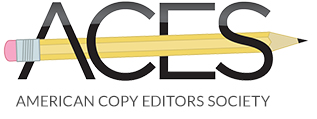A reader finds fault with me for using and/or in this post. The construction is a particular pet peeve of his, and he referred to Bryan Garner, who writes in an entry on and/or in “A Dictionary of Modern American Usage”: “To avoid ambiguity, don’t use it.” I was grateful, as always, for my readers’ good points.
In my edition of Fowler’s “A Dictionary of Modern English Usage,” Fowler succinctly handles and/or. He says it is “the ugly device of writing x and/or y to save the trouble of writing x or y or both of them.” He notes that it is common in official, business or legal writing, but that it should not occur outside those contexts. Fowler has me pegged: I was taking a shortcut.
Theodore M. Bernstein in “The Careful Writer” is adamantly opposed to and/or, too. He calls it a “visual and mental monstrosity.” Oh, oy, you really know you’re in trouble when the respected Bernstein labels your writing a “monstrosity.” As an editor once said, I am chagrined to the max.
My advice is that if you are tempted to use and/or, substitute with this construction “A or B or both” or just write “or.”
This article was originally posted by the Raleigh News & Observer, a subsidiary of The McClatchy Co.; is posted here to provide continuity; and is copyright © 2011 The News & Observer Publishing Company, which reserves the right to remove this post.
